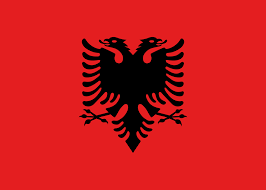
Expression
The Albanian government's prosecution of Top Channel TV following their exposure of a corruption scandal has led to questions about the level of respect for media freedom in Albania. A court in Tirana ordered the broadcaster to pay €400,000 in compensation to former cabinet minister Ylli Pango. The broadcaster aired an investigative report including hidden camera footage of Pango making inappropriate remarks to a female job applicant. In its judgement, the court said it had found in favor of the former minister because the recordings had been obtained illegally. Many domestic and international groups have defended the actions of the embattled broadcaster, drawing attention to the fact that the programme was aired in public interest. Reporters Without Borders noted:
“Blatant abuse of authority by a government minister is a subject of public interest and the press must be free to cover it. Top Channel’s decision to broadcast this video was totally justified and perfectly legitimate.”
The Albanian Parliament has drafted a new law officially designed to tackle corruption. Many media freedom groups have however expressed concern over its potential to hinder freedom of speech, undermine media freedom, and impose censorship. Journalists are particularly worried that one clause in the proposed law, designed to protect special prosecutors investigating corruption cases, could be use to arbitrarily gag media outlets. After attracting criticism from multiple civic groups, a spokesperson for the ruling party confirmed that the provision will be reworded to ensure it cannot be manipulated.
New anti-corruption law in #Albania has created fears of #censorship https://t.co/c36yyYkbyd #mediafreedom pic.twitter.com/cOChFByM22
— Balkan Insight (@BalkanInsight) August 19, 2016
Assembly
From mid-July to mid-September, Albania experienced a less intense period of public protest than in the recent past. Some examples of recent protests included:
- Hundreds of recent high school graduates protested against a newly-adopted admissions system for public universities, viewed by many as unfair and confusing.
- Albanian nationalist organisations protested in front of Kosovo's Embassy in Tirana against the proposed border demarcation agreement between Kosovo and Montenegro.
- Civil society activists in Himara protested against urbanisation, property theft and fraud.
While protest organisers in Albania do not require permission, they are obliged so submit a notification to the chief of police commissariat no later than three days before the date of the assembly. No requests for protests have been denied in recent months, nor have there been unwarranted ‘time and place’ restrictions imposed. Security forces facilitated all protests and did not employ crowd control tactics.